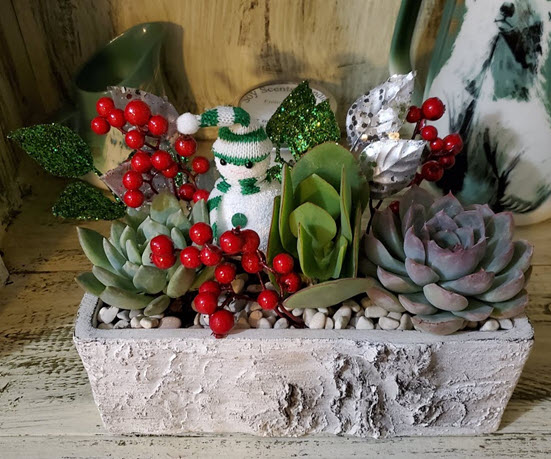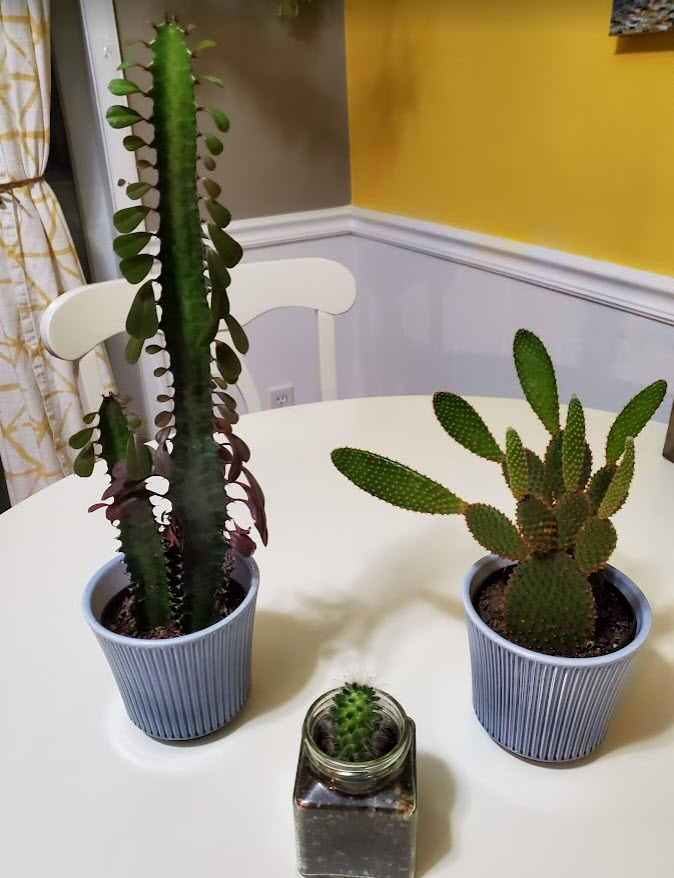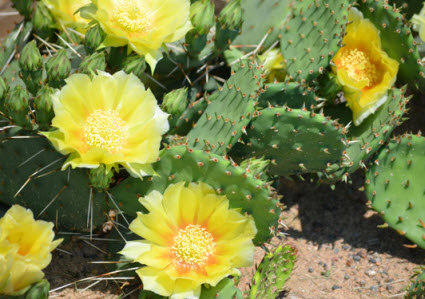Click below to listen to my 2 min. Garden Bite radio show/podcast: Succulents vs Cacti
Yesterday I talked about the popularity of the succulent, Strings of plants. Cactus are also very popular as they are excellent home or office plants.

What’s the difference between a succulent and a cactus?
There is a saying, “all cacti are succulents, but not all succulents are cacti”. Cacti are simply a subcategory within a group of plants, which are known collectively as succulents. I’ll explain… I checked out an article from Planetdesert for a better understanding.

Cacti are identified from their needle-like spines. They have fleshy stems that store water and are capable of performing photosynthesis. A succulent plant, on the other hand, holds water and nutrients in its fleshy leaves. (Notice the succulents above and my African Milk Tree) Most cactus plants don’t have leaves but some of them do. Additionally, cacti form small white bumps on their surface called areoles. Succulents don’t. You can clearly see in the photos. According to Planet Desert, this is the main characteristic that makes the two different from each other. A plant without areoles is a succulent.
Both succulents and cacti bloom. However, the flowers of cactus plants are brighter, larger in size, and have complex structures as compared to flowers of succulents. In Minnesota, this makes me think of our cold hardy ‘Prickly Pear’ cactus. Cactus blooms are pollinated by bees, butterflies and bats while succulent flowers are simple and small and usually pollinated only by bees.

As for care, all of them should be planted in a well draining mix such as a cactus mix. Succulents need more water than cactus but not as much as a regular houseplant. They prefer less light. (It IS possible to overwater them, I overwatered mine.) Cactus need less water and prefer bright, indirect light. These plants suffer when overwatered.
